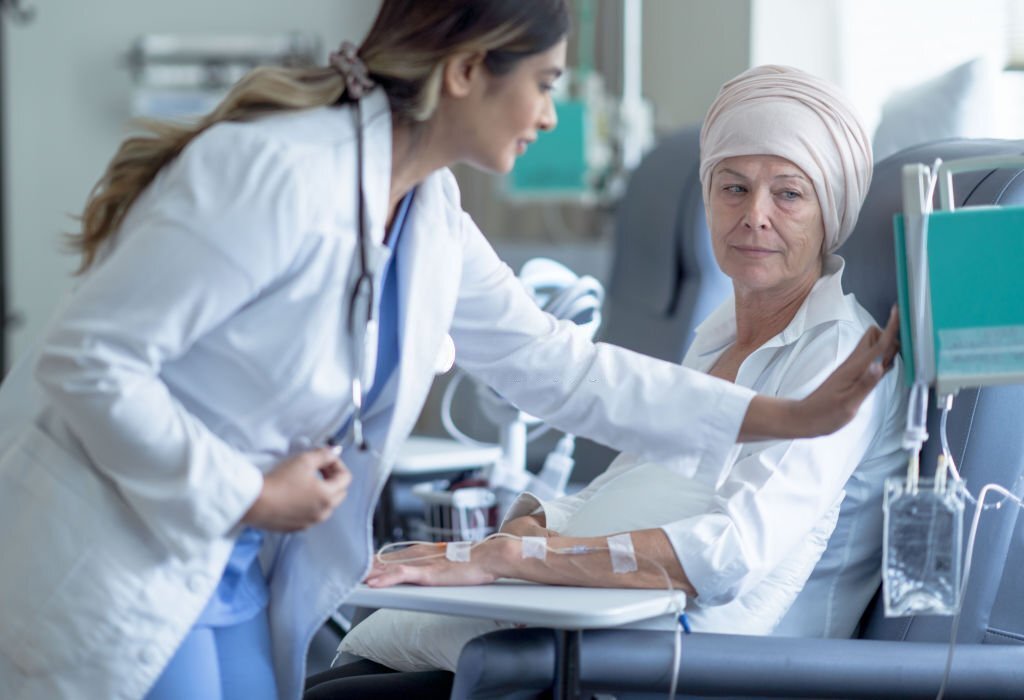Across countries, over 10% of the male population suffers from prostate cancer in their lifetime. Though the actual incidence of prostate cancer varies with age and ethnicity, it is important for every person to be careful about early signs of this disease, and consult with doctors for stage-specific treatment plans. If you are living in a country with limited cancer treatment facilities or high costs of cancer care, consider any of the top prostate cancer surgical hospitals in India. They are popular choices among international patients for quality treatment at affordable costs.
This article provides a comprehensive understanding of prostate cancer treatment in Indian hospitals.
What is Prostate Cancer?
To understand the cancerous growth in the prostate, we first need to understand what the prostate gland is and its function. The prostate gland is an organ in the shape of a small walnut, sitting just below the urine bladder and closer to the rectum. This gland produces fluid that carries semen. It is the same semen-containing fluid that men ejaculate during sexual intercourse.
Prostate cancer occurs in men when prostate gland cells start growing abnormally following uncontrolled genetic mutation. At least 1 out of 8 men suffer from prostate cancer and the actual reasons behind such cancerous growth are unknown. However, the rate of successful recovery is significantly high compared to many other types of cancer. This rate increases significantly when the disease is detected in the early stages. Usually, men above 50 years are vulnerable to prostate cancer. This is why men entering their 50s need to be cautious and report any early symptoms.
What are the early symptoms of prostate cancer?
Early symptoms of prostate cancer are very few and, often, it is difficult to identify. Most of the common symptoms start showing up after the cancer growth has advanced. Some of the common symptoms are:
- Difficulties in urinating
- Blood in the urine
- Blood in the semen
- Bone ache
- Abnormal weight loss
- Erectile dysfunction (ED)
Problems in urinating may include difficulty in starting urination, very frequent or infrequent urination, and a burning sensation while urinating. Some of these problems can be more common during nighttime. Many of these symptoms can also be signs of other health problems. However, people should consult a doctor immediately if any problem or combination of problems persists over time.
The stages of prostate cancer are:
- Stage I: Cancerous cells confined to a specific portion of the prostate gland
- Stage II: Cancer is still confined to the gland but the rate of growth increases aggressively and early symptoms show up
- Stage III: Cancer spreads outside the gland but is yet to affect lymph nodes.
- Stage IV: Cancer affects multiple lymph nodes and spreads to multiple other organs.
Prostate Cancer Treatments
Top prostate cancer surgical hospitals in India regularly treat thousands of cases every year. Based on the severity of cancer growth, doctors prescribe different treatment plans. The conventional treatment plan for Stage-I and Stage-II prostate cancer are:
- Surgically removing cancer cells
- Radiation and chemotherapy for killing residual cells
- Periodic monitoring for relapses
Many of the top prostate cancer surgical doctors in India are also recommending innovative cancer care techniques like immunotherapy along with surgical intervention. For early-stage (Stage-I) patients, oncologists at top prostate cancer surgical hospitals in India are also recommending hormone and immunotherapy before performing surgeries.
Prostate Cancer Treatment in India
Being a large country with a strong tertiary healthcare infrastructure, there are a number of well-equipped prostate cancer surgical hospitals in India along with research facilities. Many of these hospitals attract thousands of cancer patients from different parts of the world. A significant portion of these people come with prostate cancer.
Any of the top prostate cancer surgical hospitals in India require patients to go through the following process for effective and holistic cancer care and treatment.
1. Cancer screening
Cancer screening is necessary for patients with early symptoms or zero symptoms. Usually, male patients above 50 should undergo cancer screening. The common methods are the digital rectal exam and the prostate-specific antigen (PSA) test. Screening helps identify the existence of cancerous cells in an organ.
1. Diagnosis
If prostate cancer screening is affirmative, doctors conduct diagnostic tests like biopsy, magnetic resonance imaging (MRI), and ultrasound sonography (USG) for definitive confirmation of cancer in the prostate gland.
1. Staging of the cancer
Once diagnostic results are out, doctors determine the rate of advance of the cancerous cells, project the spread of the disease and zero in on the stage of the cancer. The treatment plan depends on accurate staging.
1. Decision on the treatment plan
Many of the best prostate cancer surgical hospitals in India offer conventional and latest cancer therapies. Early-stage diagnosis allows more time to try new therapies, like hormone therapy and immunotherapy. However, advanced-stage cancer requires immediate surgical intervention with multiple rounds of radiation and chemo.
1. Treatment
Some of the common treatment options available in any of the top prostate cancer surgical hospitals in India are:
- Radical prostatectomy
- Radiation therapy
- Hormone therapy
- Immunotherapy
- Targeted therapy
- Ablative treatments
Bottomline
The rate of success in prostate cancer treatment is high, even for stage-II and stage-III patients. Costs of treatment at prostate cancer surgical hospitals in India are also much more affordable compared to global standards. This is the reason why India has become known as a top medical tourism alternative for patients seeking prostate cancer treatment.









